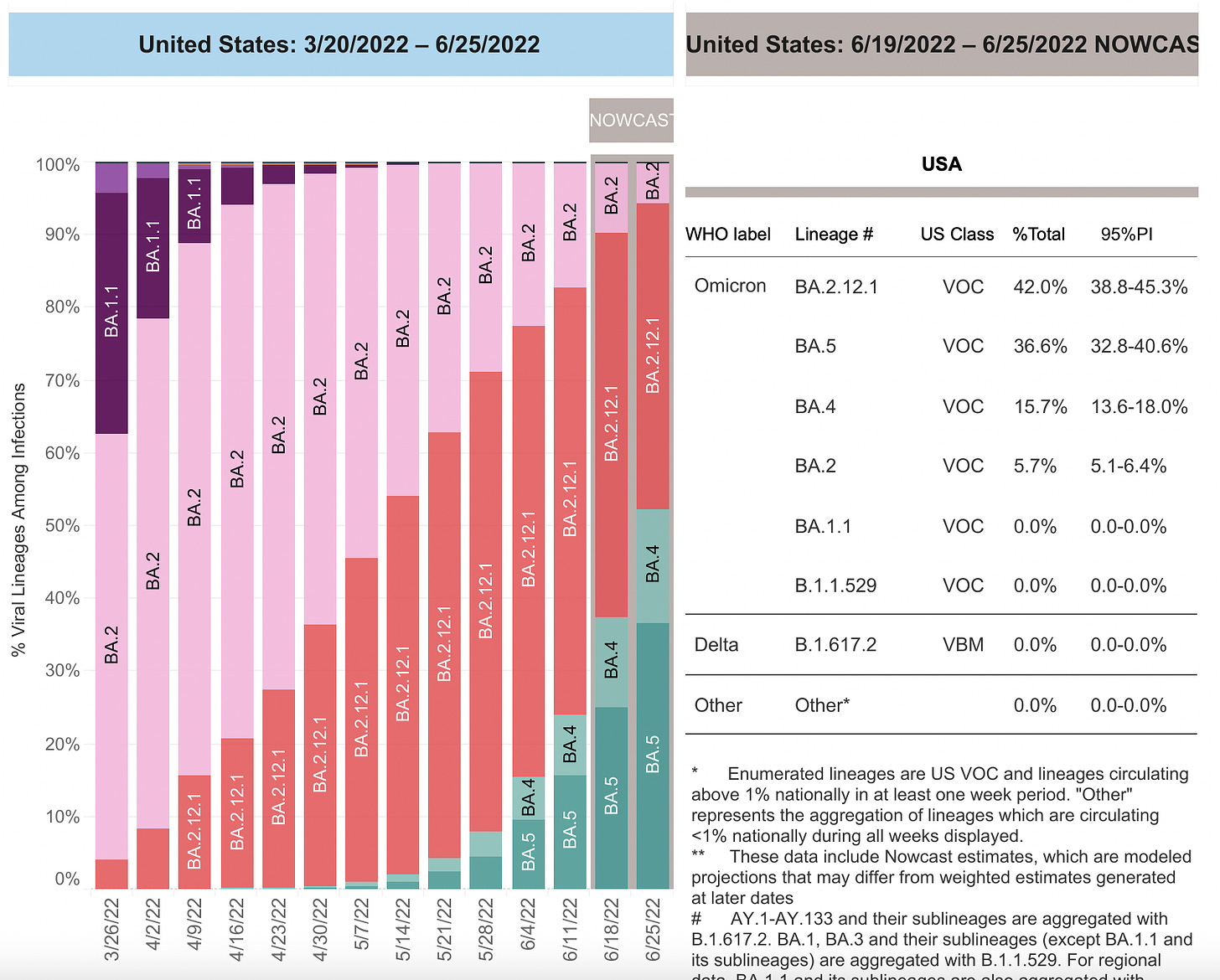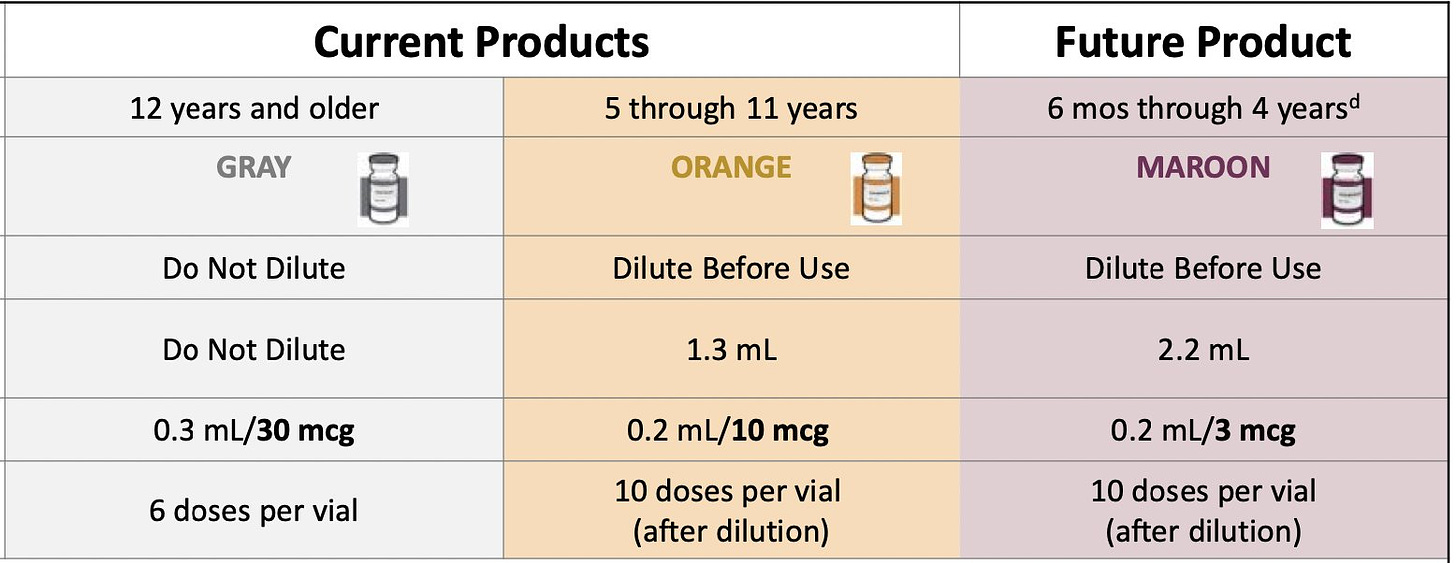Drug Cartel: Biden Admin Agrees to Pay Pfizer 56% More for Their COVID Shots
The pharma giant is already shattering profit records, and is expected to generate well over $100 billion in 2022 revenue.

All Global Research articles can be read in 51 languages by activating the “Translate Website” drop down menu on the top banner of our home page (Desktop version).
To receive Global Research’s Daily Newsletter (selected articles), click here.
Visit and follow us on Instagram, Twitter and Facebook. Feel free to repost and share widely Global Research articles.
***
Pfizer is already swimming in record profits, but that hasn’t stopped the drug company from gouging the American taxpayer for every last dollar.
On Wednesday, the Biden Administration signed off on a new vaccine supply deal with Pfizer for $3.2 billion for 105 million COVID injections, but that’s only for the first batch of mRNA shots. The contract will generate well over $9 billion for Pfizer, as this latest purchase agreement tops off at 300 million doses. Compared to previous settlements with Pfizer, this public-private no-bid arrangement will come at a much higher cost to the U.S. taxpayer.
The Biden Administration has justified the deal by claiming that it needs to restock supply to prepare for seasonal spikes. The data does not support such a claim. According to the CDC, almost 100 million taxpayer-funded Pfizer shots (and 169 million total shots) have gone unused, resulting in billions of dollars in waste.
According to CDC data there are currently over 168 million unused doses of the vaccines.
– 59M unused Moderna shots
– 98M unused Pfizer shots
– 12M unused Janssen shots762 million shots distributed and 594 shots administered. That 50,751 unused shots for every 100K US citizens pic.twitter.com/LFdN2RimoH
— Justin Hart (@justin_hart) June 30, 2022
The new arrangement allows for the Biden Administration to buy Pfizer’s authorization-pending COVID injections, which the company claims is reformulated for newer variants.
However, even the new formulation is already outdated. It was designed and trialed for an Omicron subvariant (BA.1) that was popular last Winter, but no longer exists in circulation, potentially rendering it just as useless as the Wuhan strain shot. The deal includes the infant and toddler formulations, which are based on the non-existent Wuhan strain.

None of the shots for this deal will be supplied under an FDA approved label. Instead, they will be distributed under emergency use authorization (EUA). Pfizer has never deployed its FDA-approved vaccine in the United States. The company recently acknowledged that it never intends on producing its original FDA approved vaccines.
The original deal with Pfizer was negotiated by the Trump Administration during the days of Operation Warpspeed. It paid the pharma giant $19.50 a dose. The new pact gives Pfizer $30.48 per dose, resulting in an astronomical 56% hike from the deal negotiated by the last administration.
The price hike conflicts with the probability that Pfizer’s costs are likely much lower than they were with the original purchase order. The infant and child shots have a fraction of the active agreement as the adult supply, and each vial stores more doses . Moreover, Pfizer has added an ingredient to the formula that allows for a significant shelf life extension, making the logistics much more cost effective.

Pfizer’s margins were already through the roof prior to the Wednesday announcement.
Pfizer’s May earnings report showed that the company logged a record breaking $26 billion in Q1 sales, marking a quarterly profit of $7.86 billion. Revenue was up 77% from 2021, while profit was up 61%. Now absorb these 2022 numbers in the context of Pfizer’s 2021 revenue outperforming its 2020 revenue by 95%.
Before the new vaccine purchase order, Pfizer was already on track to bring in over $100 billion in revenue and $32 billion in net income this year. In financial statements, the company has acknowledged that it has transformed itself into a COVID-19-driven business. All of its new income is coming from the American taxpayer and other government “customers” via their taxpayers, who have virtually no say in the matter.
*
Note to readers: Please click the share buttons above or below. Follow us on Instagram, Twitter and Facebook. Feel free to repost and share widely Global Research articles.
Featured image is from The Dossier

